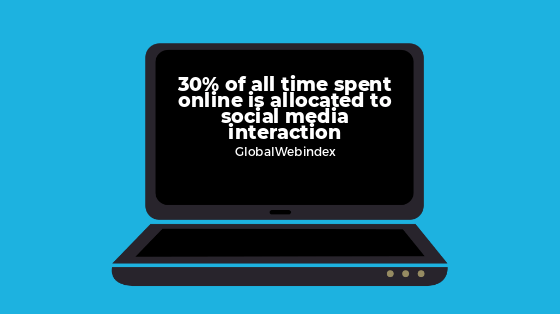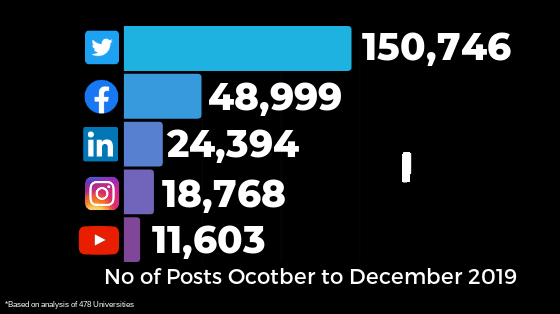The reputation of an institution or a brand is vital to its success. Traditionally the responsibility of this reputation falls upon communication and marketing teams, who work hard to portray the desired reputation through activities, messaging and communications. Sadly, the hours of planning and work are only one half of the battle. A reputation cannot be formed without the adoption or agreement of your audience. It is their acceptance and belief in what you are saying, and ultimately their relaying of that information that builds an institution’s reputation outside of the university’s four walls.

To put it more simply, reputation requires conversation. This is where Social media comes in. In the past more traditional methods of communications, such as postal campaigns, posters or print advertising, use to only allow for a one-way dialogue; This is our message, please act on it. But with social media, conversation flourishes, with people using the platform to voice opinions and converse freely with like-minded people. Therefore, social media is imperative to any communication strategy that looks to improve reputation.

So much so that at the World 100 Network we provide rankings of 478 of the world’s best universities. Our Social Media Rankings are based on how actively engaged the fans are, rather than a measure of the size of the fan-base or how many posts are published. That’s because engagement is the key; it’s the conversation. Social media engagement ultimately expands the reach of your content and the size of your audience. By one person sharing your post, your content is automatically in front of their network, who may share it with their network and so on. Therefore, any communications messaging is amplified, and your reputation is potentially increased.
So, what can you do to improve your university’s reputation on social media? Here are 3 tips:
- Post the right content, at the right time – This is the most important thing you can do for two reasons. Firstly, if your content isn’t relevant you won’t get engagement, rendering your social media strategy pointless. Secondly, the types of content you put out say a lot about the reputation you want to build for your institution, so get it right.
- Monitor your channels and conversations – What are people saying about you? How are they interacting? What are they interacting with? This information can be vital when constructing your content strategy and give you a lever to steer the conversation in a way beneficial way
- Resolve any issues – whilst these issues may temporarily ring alarm bells for your university’s reputation, how they are dealt with and resolved may work in your favour
To find out more about our Social Media Rankings visit our dedicated page or contact Contact research@www.theworld100.com to find out about access to the full detailed data and reporting.


